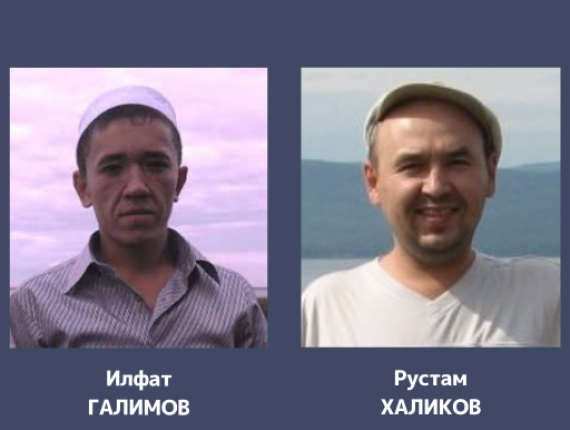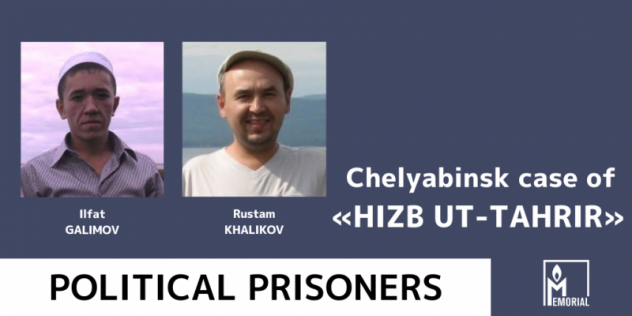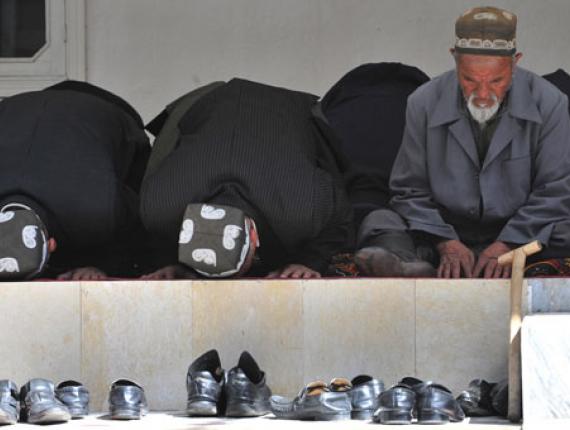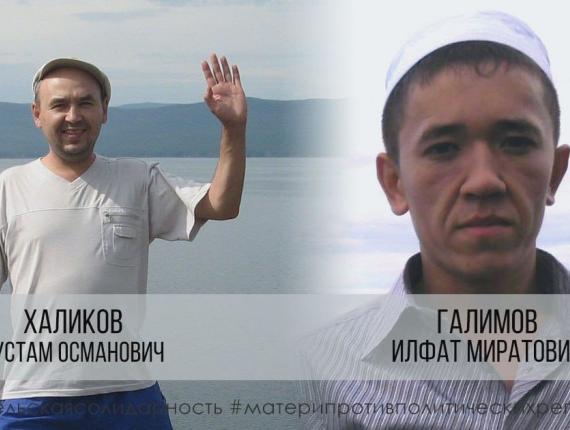Two Muslims from Chelyabinsk region accused of being participants in the banned Hizb ut-Tahrir are political prisoners
Ilfat Galimov and Rustam Khalikov are charged with terrorism offences solely because of their alleged involvement in Hizb ut-Tahrir. They are not charged with acts of violence, preparations for such acts, or with incitement or justification of violence
Memorial Human Rights Centre considers Ilfat Galimov and Rustam Khalikov political prisoners in accordance with guidelines defining the term. We believe they are being prosecuted for political reasons for the non-violent exercise of the rights to freedom of conscience, religion, expression and association, with the aim of consolidating and preserving the power of those in authority. On the basis of available information, we believe they have been deprived of liberty in the absence of a crime and in violation of the right to a fair trial. Memorial calls for the immediate release of Galimov and Khalikov.
Who are Ilfat Galimov and Rustam Khalikov?
A criminal investigation was begun against 34-year-old Ilfat Galimov and 42-year-old Rustam Khalikov, both from Chelyabinsk region, on 14 November 2019.
They were detained on 29 November 2019 and have since then been held in custody in the Chelyabinsk pre-trial detention centre.
Galimov and Khalikov are accused of involvement in Hizb ut-Tahrir, an Islamic party banned in Russia. They have been charged with participating in the activities of a terrorist organisation (Article 205.5, Part 2, of the Russian Criminal Code) and recruiting new members for the organisation (Article 205.1, Part 1.1, of the Russian Criminal Code). The charges carry penalties up to life imprisonment.
Their trial is currently underway in the Central District Military Court.
Why does Memorial consider Galimov and Khalikov political prisoners?
Memorial has carefully studied the charges brought against Ilfat Galimov and Rustam Khalikov. We believe their criminal prosecution has no basis in law and is politically motivated.
Galimov and Khalikov have not been charged with any acts of violence, the preparation of such acts, or with making threats of violence or inciting violence. All the charges against them regarding participation in a terrorist organisation (Article 205.5, Part 2, of the Russian Criminal Code) and involvement in the activities of such an organisation (Article 205.1, Part 1, of the Russian Criminal Code) are based solely on their involvement in the Islamic party Hizb ut-Tahrir, which is banned in Russia.
Memorial considers the designation of Hizb ut-Tahrir as a terrorist organization unfounded and unlawful. The Supreme Court decision of 14 February 2003 devotes three sentences to Hizb ut-Tahrir’s activities: the first states the organisation’s goal of establishing a worldwide Islamic caliphate, the second mentions its extensive Islamic propaganda, and the third refers to its activities being banned in Uzbekistan and certain Arab countries. These statements are no basis for recognising the organisation as terrorist. Consequently, it is illegitimate to bring accusations of terrorism solely on the basis of membership of, or involvement in, Hizb ut-Tahrir. In spite of this, charges of participation in any activities of this organisation automatically entail severe prison sentences.
According to the list maintained by Memorial, at least 316 people have either been convicted or are currently being prosecuted for involvement in Hizb ut-Tahrir.
Ilfat Galimov admits membership of Hizb ut-Tahrir; Rustam Khalikov denies membership and says that he only had an interest in the party’s ideology.
The evidence purportedly showing the defendants’ participation in the activities of Hizb ut-Tahrir and their recruitment of other individuals into the organisation raises serious doubts. The identities of two of the three witnesses who testified in the case have been kept secret. Two of the witnesses learned about the activities of Hizb ut-Tahrir while already serving a sentence in a penal colony; a third stated he had gone to the Chelyabinsk FSB [Federal Security Service] because he had learned about the defendants’ arrests from the media and ‘feared he might be prosecuted for his involvement in the activities of Hizb ut-Tahrir.’ In other words, key witnesses in the case are not independent of law enforcement agencies and may have been subjected to pressure when giving testimony.
A more detailed description of the case and the position of Memorial Human Rights Centre is available on our website.
Recognition of an individual as a political prisoner or as a victim of politically motivated prosecution does not imply Memorial Human Rights Centre agrees with, or approves of, their views, statements, or actions.
How you can help
You can support all political prisoners by donating to the Fund to Support Political Prisoners of the Union of Solidarity with Political Prisoners via PayPal, using the e-wallet at helppoliticalprisoners@gmail.com.
You can read this press release in the original Russian on our website.
Поделиться:
- ВКонтакте
- РћРТвЂВВВВВВВВнокласснРСвЂВВВВВВВВРєРСвЂВВВВВВВВ
- Telegram





